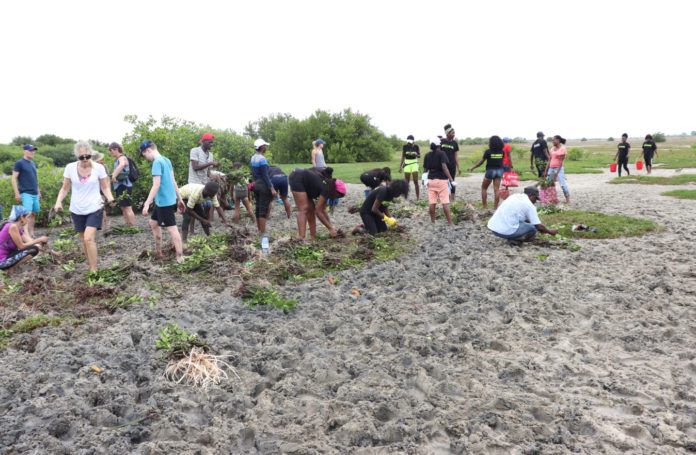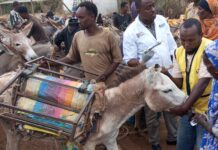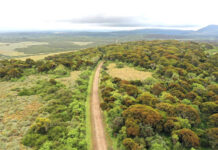In the scorching sunny Saturday morning, a group of volunteers braving the heat in a bid to save the depleted Mangrove ecosystem in Angola’s capital city Luanda.
The volunteers led by Otchiva project in Angola are wade into the marshy waters with the ambition to plant 31,326 mangrove trees in under 2 hours in the quest of reforesting the washed-out Mangrove.
Otchiva means wetland in the Portuguese speaking nation has dedicated itself to reclaim the Angolan Mangrove ecosystem that has been disappearing at a frightening speed due to the rapid urbanization and huge demand for construction.
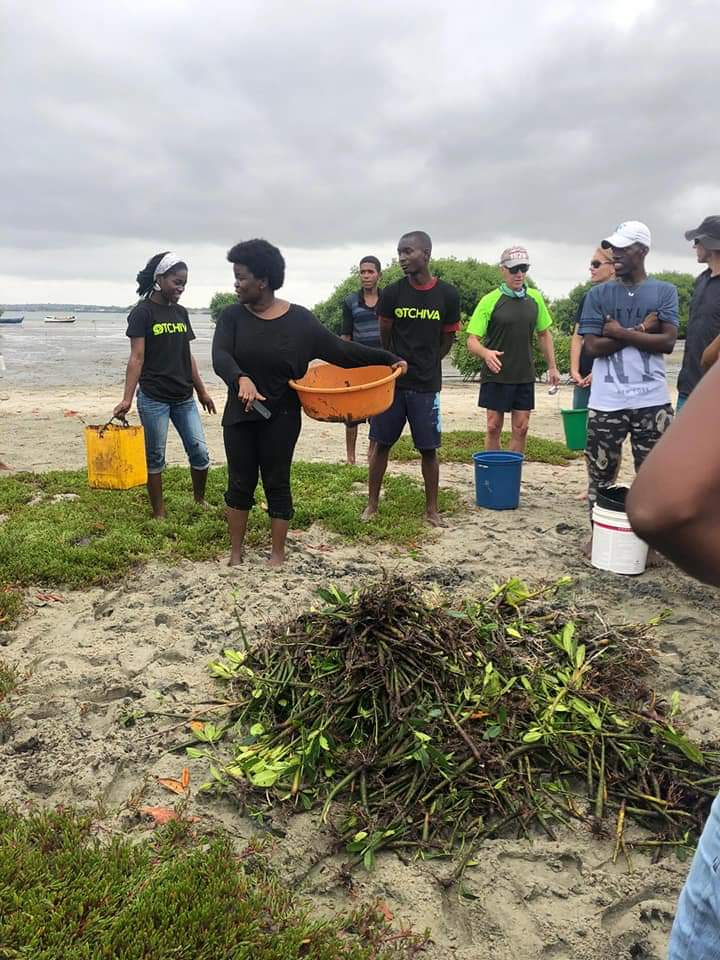
Fernanda Renee the Project Co-coordinator at Otchiva speaking to Talk Africa attributed the Mangrove reforestation project to the African Union recommendations. “We held the African Environment Day on the protection of the mangrove ecosystem as sustainable use of natural resources early in the year in February and we are currently implementing the recommendations to reforest the depleted Mangroves in Angola,” she said.
A recent study by Scientists dubbed the Current status and conservation of mangroves in Africa shows the rapid depletion of the African Mangrove forest cover.
The study shows 60% of the loss of Mangroves in the Gulf of Guinea from Liberia to Angola is accredited to fuelwood exploitation for fish smoking, wood for construction, petroleum and gas exploration and exploitation activities along the coast and urban construction activities.
With 200 volunteers drawn from all walks of life and passionate about the Mangrove ecosystem was inspired by reforestation in other countries, “The mangroves we planted came from the inspiration of other countries like Brazil and Mexico and Angola we intend to inspire other African countries to protect our mangroves, a vital ecosystem for the globe” says Fernanda.
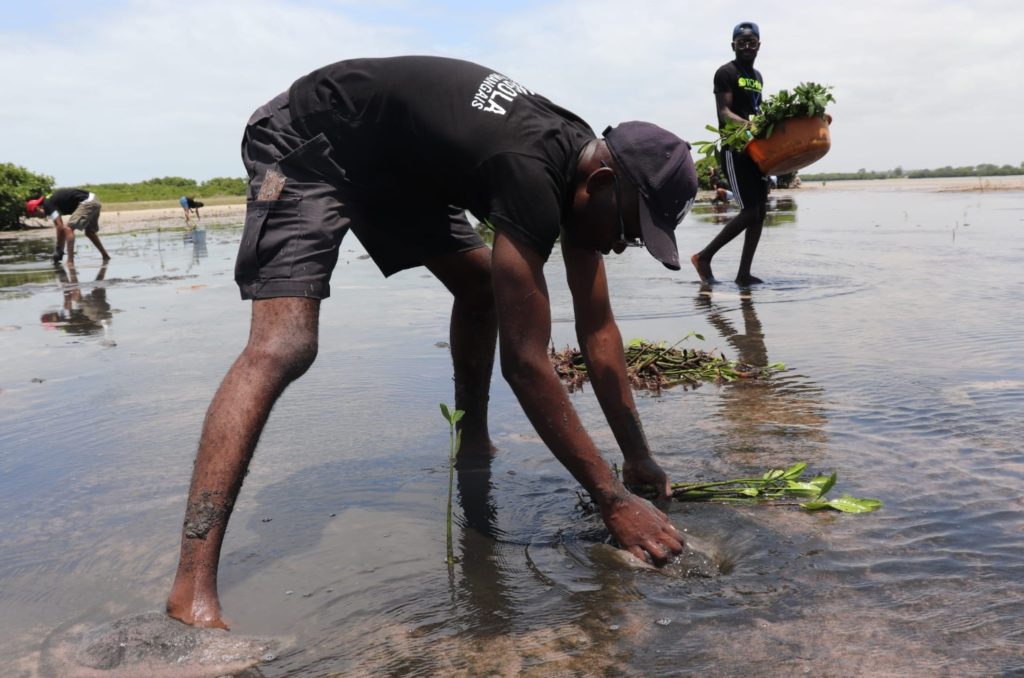
The project by Otchiva is being implemented in all provinces of the coast of Angola Fernanda says. The Municipality of Lobito and the Capital of Angola in Luanda are the 2 places where the project already presents results.
“The municipality of Lobito is known internationally as the city of flamingos, and this type of migratory bird has not been seen in this place for years, because of its habitat was clogged, what was left of its habitat was very polluted with garbage and combustible oils which caused the death of some flamingos and the immigration of others. The project sensitized the locals and launched a massive cleaning campaign for many months and today it is already possible to see some flamingos rising every day, as well as crabs, and this act even influenced the local government to join the project” says Fernanda.
Like coral reefs, mangrove forests are extremely productive ecosystems that provide numerous goods and services both to the marine environment and people. According to a recent report by WWF, these goods and services are conservatively estimated to be worth US$186 million each year.
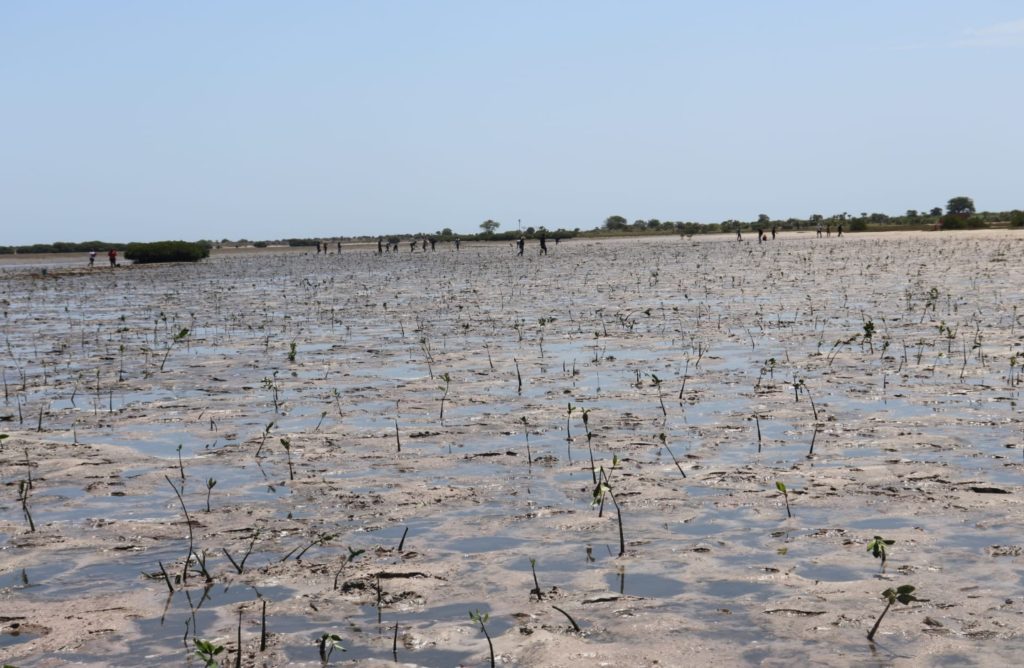
The Mangrove forest covers globally stand at 3.2 million ha. with Africa claiming 19% of the global cover that is distributed in 3 major coastal sections.
The Western Atlantic has 1.5 Million ha, the Central Atlantic 0.4 million ha and the Eastern Indian ocean has 1.2 Million ha of the coasts of Africa.
Finally, the 31,326 Mangroves have been planted in 2 hours and the volunteers are happy with themselves and the hope is to see a green ecosystem in the next few months.

